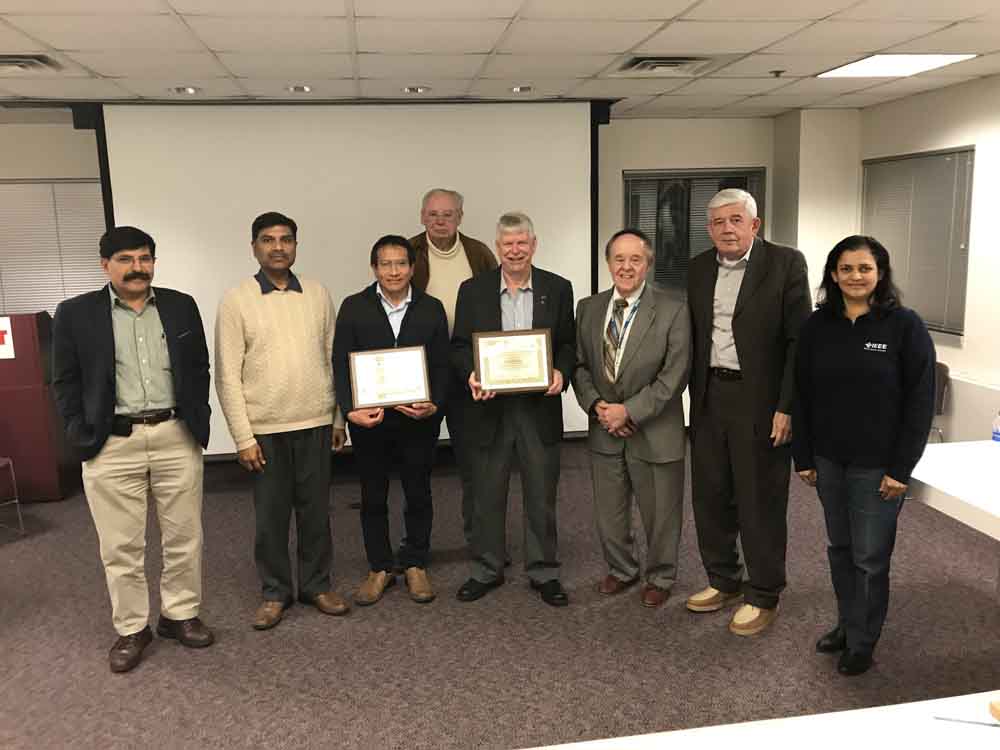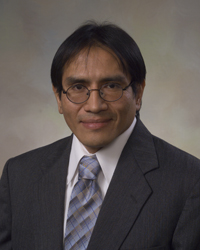An Holistic Approach to Foster Space Weather Research Across Arecibo and Jicamarca
An Holistic Approach to Foster Space Weather Research Across Arecibo and Jicamarca

Space weather is a critical area of research as our society relies more and more on the successful operation of our commercial, government, and national security infrastructure. In the United States, the National Space Weather Program works to improve space weather services so that the United States is prepared to deal with technological vulnerabilities caused by variable conditions in the Earth’s space environment, often called ionospheric irregularities. These ionospheric fluctuations occur on varying spatial and temporal scales, but are often unpredictable in occurrence and spatial extent. This paper presents an overall vision to address the study of these phenomena using Arecibo and Jicamarca Observatories in conjunction with a constellation of small satellite system and ground based complementary RF and optical sensors. The unique attributes of Arecibo and Jicamarca are further discussed to link space science research with the United Nations Sustainable Development Goals and the Ten research "big ideas" vision of the National Science Foundation. These ideas will be presented seeking to establish a platform known as the fourth age of research.
Date and Time
Location
Hosts
Registration
-
 Add Event to Calendar
Add Event to Calendar
- 154 Summit Street, Newark, NJ 07102
- Newark, New Jersey
- United States 07102
- Building: ECEC
- Room Number: 202
- Click here for Map
- Contact Event Host
-
Ajay K. Poddar, Ph.: 201-560-3806, email:akpoddar@ieee.org
Durga Misra, +1-973-596-5739, email: dmisra@ieee.org
Edip Niver, email: edip.niver@njit.edu
Anisha Apte, email: anisha_apte@ieee.org
- Co-sponsored by ED/CAS, AP/MTT17
Speakers
 Dr. Julio Urbina of The Pennsylvania State University, University Park, PA 16802
Dr. Julio Urbina of The Pennsylvania State University, University Park, PA 16802
An Holistic Approach to Foster Space Weather Research Across Arecibo and Jicamarca
Space weather is a critical area of research as our society relies more and more on the successful operation of our commercial, government, and national security infrastructure. In the United States, the National Space Weather Program works to improve space weather services so that the United States is prepared to deal with technological vulnerabilities caused by variable conditions in the Earth’s space environment, often called ionospheric irregularities. These ionospheric fluctuations occur on varying spatial and temporal scales, but are often unpredictable in occurrence and spatial extent. This paper presents an overall vision to address the study of these phenomena using Arecibo and Jicamarca Observatories in conjunction with a constellation of small satellite system and ground based complementary RF and optical sensors. The unique attributes of Arecibo and Jicamarca are further discussed to link space science research with the United Nations Sustainable Development Goals and the Ten research "big ideas" vision of the National Science Foundation. These ideas will be presented seeking to establish a platform known as the fourth age of research.
Biography:
Dr. Julio Urbina received his BSEE degree from Universidad Nacional de Ingenieria, Lima, Peru, in 1990, and his M.S. and Ph.D. degrees in electrical engineering from the University of Illinois at Urbana–Champaign in 1996 and 2002, respectively. He has worked at Jicamarca Radio Observatory, Arecibo Observatory, and University of Arkansas. He is currently an Associate Professor in Penn State. Dr. Urbina’s research has used radio and radar technologies to study the Earth’s middle and upper atmosphere. He conducts research in RF and Microwaves, digital systems and space instrumentation, cognitive radars, software-defined radio and radars, sensors, acquisition, drones, UAVs, harmonic radars, reconfigurable instrumentation, meteor radio science, radio wave propagation, space engineering, remote sensing, and radar studies of the ionosphere. His educational research interests include effective teaching techniques for enhancing engineering education, global engineering and international perspectives, computational thinking, cyberlearning and cyber-environments, teaming and collaborative learning. In 2011, Dr. Urbina received the National Science Foundation CAREER award for his research on Cognitive Radar systems to study plasma instabilities. In 2015, Dr. Urbina received the Fulbright Scholar Award from the Department of State.
Dr. Urbina is the Chair of IEEE Central Pennsylvania Section. He is also member of the IEEE Antennas and Propagation Society, IEEE Aerospace and Electronic Systems Society, International Union of Radio Science Commission G, and CEDAR Science Steering Committee. He has been an Associate Editor for the Journal of Atmospheric and Solar-Terrestrial Physics, and served as an Arecibo Observatory Users and Scientific Advising Committee Member. He has mentored many undergraduate students and has graduated numerous graduate students and received many awards over the years.
Email:
Address:The Pennsylvania State University, , University Park, Pennsylvania, United States, 16802
Agenda
5:30PM - Refreshments and Networking
5:45 PM-6:30 PM: Talk by Prof. Julio Urbina, Penn State University, University Park, PA 16802
You do not have to be an IEEE Member to attend. Refreshmen is free for all attendess. Please invite your friends and colleagues to take advantages of this Invited Lectures.
Co-sponsor by IEEE North Jersey MTT/AP & ED/CAS Chapters
